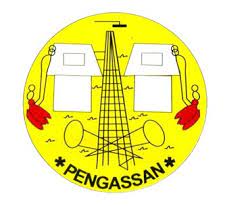•FG insists on $300 levy
CHIGOZIE AMADI
Petroleum workers under the aegis of the Nigeria Union of Petroleum and Natural Gas Workers and the Petroleum and Natural Gas Senior Staff Association of Nigeria (NUPENGASSAN), have asked the federal government to immediately withdraw the new landing fees imposed on helicopter operators, especially those servicing the oil and gas industry in Nigeria.
A statement jointly signed by NUPENG’s General Secretary, Afolabi Olawale and PENGASAN General Secretary, Lumumba Okugbawa, expressed grave concern regarding the landing fees imposed on helicopter operators, describing it as a threat to the oil and gas industry.
The unions referred to a recent memo directing helicopter operators to compulsorily pay for helicopter landing fees at all Nigerian aerodromes’ helipads, airstrips, Floating Production Storage and Offloading (FPSO) units, Floating Storage and Offloading (FSO) units, and other oil platforms to generate more revenue to the federal government.
While rejecting the new charges, NUPENGASSAN said that it would pose a grave threat to the sustainability and viability of the helicopter transport sector that is critical to Nigeria’s oil and gas industry.
“We strongly condemn this decision by the Federal Ministry of Aviation to impose exorbitant fees on helicopter operators during this period of economic hardship on businesses and the citizenry.
“We hereby demand the withdrawal of this policy immediately in the overall interest of the country. As unions working for the growth of the nation’s economy, we strongly urge the Ministry of Aviation to immediately withdraw the landing fees on helicopter operators servicing the oil and gas industry.
“These new charges, which include a 4 per cent charge on the gross revenue of helicopter operators, as well as additional levies and taxes, pose a grave threat to the sustainability and viability of the helicopter transport sector that is critical to Nigeria’s oil and gas industry.
“This is very insensitive at a time the federal government is shopping for investors in the oil and gas industry and muting various incentives to make the industry attractive,” the group stated.
According to the unions, the oil and gas industry is a critical component of Nigeria’s economy, and the helicopter operators serving the sector play a vital role in its success.
They said the helicopter operators provide essential transportation services, moving personnel and equipment to offshore platforms and remote locations, ensuring the smooth and efficient operation of the industry.
“This unpopular decision has a detrimental impact on the sector, as this incremental cost is going to be passed on to the chartering companies who will in turn transfer the burden to the employees in the sector.
“This would not only provide much-needed relief to the sector but also demonstrate your commitment to fostering a business-friendly environment and supporting the growth and development of this crucial industry.
“We look forward to the federal government through the Ministry of Aviation prompt attention and decisive action to address this pressing issue as failure to act swiftly will certainly pose a grave danger to the industrial harmony that is currently enjoyed in this sector,” they argued.
Meanwhile, the Ministry of Aviation and Aerospace Development has insisted that helicopter operators must pay the newly introduced $300 landing charges, which a private company, NAEBI Dynamic Concept Limited is billed to collect on behalf of the federal government.
This was contained in a statement issued by the Ministry and signed by the Head, Press and Public Affairs, Federal Ministry of Aviation and Aerospace Development, Odutayo Oluseyi.
The statement said the Ministry of Aviation recognises the importance of helicopter operations in Nigeria’s aviation industry and is committed to implementing international best practices in helicopter operations through its agency, the Nigerian Airspace Management Agency (NAMA).
Oluseyi explained that the introduction of helicopter landing levies, which is in line with international best practices, was to enhance the quality of helicopter operations as a cost recovery measure.
“Helicopter landing levies are commonplace in countries such as the United States, the United Kingdom, India, and various regions worldwide. For instance, Tallahassee International Airport in Florida began implementing helicopter landing levies under Vector Airport Systems since October 1, 2022.
“Helicopter landing levies are common across airfields in the UK, ranging from major commercial ones to small general aviation fields. Typically, helicopter levies match or exceed those for fixed-wing aircraft, varying based on factors like location and services provided.
“The federal government has granted NAEBI Dynamic Concepts Limited exclusive rights to collect helicopter landing levies in line with the Memorandum of Understanding (MoU) between NAEBI Concept and NAMA, Federal Airport Authority of Nigeria (FAAN) and the Nigeria Civil Aviation Authority (NCAA).
“It is instructive to note that NAMA under the Act as amended in 2022 is empowered to collect aeronautical revenues in both the upper and lower airspace to support her self-sustainability.
“However, over the years, NAMA has predominantly relied on the upper airspace for her revenue generation. Government in her wisdom having discovered a lacuna on the lower airspace where helicopter operations is dominant directed NAMA to live up to her responsibilities to enable them generate enough resources to sustain their aeronautical architecture, enhance security and surveillance, and improve the overall quality of helicopter operations in Nigeria,” the statement said.
The ministry also said that it was confident that this move would improve capacity, efficiency, safety, security, and attract more investment in the aviation industry.
“We encourage all stakeholders to be committed to this laudable initiative that has followed due processes and procedures, and should embrace the new normal,” the ministry said.

























